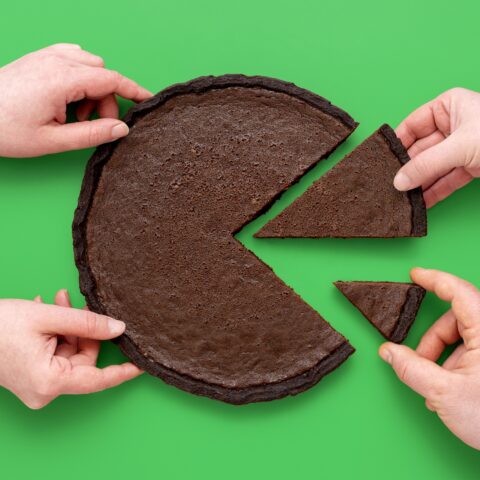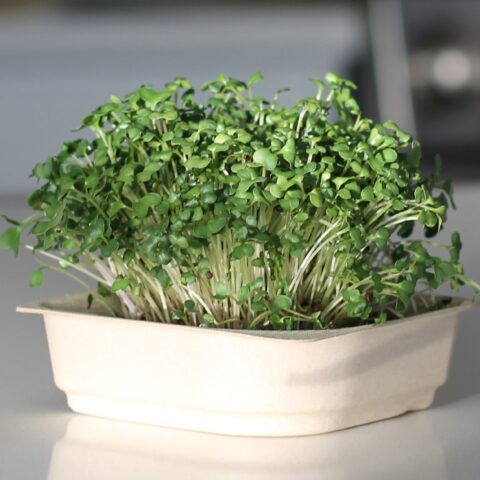Are Dates Paleo?

Despite the many benefits of The Paleo Diet®, if there’s one sacrifice that followers of the diet struggle with, it is a lack of sweets.
Fortunately, there’s a natural way to get the sweetness you crave: with seductively sweet Medjool dates. Plus, dates come with a few benefits, like helping to lower blood pressure, and they may increase metabolism. They also contain lots of fiber, which you can’t get from processed sugar.
While dates are generally Paleo-approved, it is important to limit how often you enjoy them.
Let’s dig into the potential benefits of eating dates, and how you can safely add them into your diet.
Benefits of Medjool Dates
A Substitute Sweet Treat
One problem with sticking to a strict Paleo Diet is that the feeling of deprivation can lead to “cheating” or binge eating — especially sugar. Dates are packed with nutrients, minerals, and insoluble fiber, meaning a single serving can leave you feeling full. That feeling can suppress your cravings for sweets, but only if you eat them in moderation. Dates are heavy in fruit sugars, or fructose, which some people have trouble digesting. Poor fructose absorption can result in diarrhea, gas, and abdominal pain.
Fiber-Filled
Medjool dates outdo most fruits when it comes to dietary fiber. A single serving provides about 25% of your required daily intake. A diet high in fiber helps your digestion run smoothly, which in turn enables you to absorb more nutrients. Dietary fiber lowers cholesterol levels and reduces the formation of fatty deposits in arteries. But a heavy dose of fiber can cause digestive issues if your body isn’t accustomed to it. The fibers in dates can cause gas, constipation, bloating, and cramping.
Metabolism-Maintaining
Medjool dates are high in B complex vitamins (niacin, pantothenic acid, and folic acid.) These vitamins help regulate your metabolism and support metabolic functions. Significant levels of copper also help you absorb the iron found in dates, which in turn boosts your energy levels. By offering high, sustained energy, this on-the-go snack can help with athletic recovery and energy. However, dates have a high glycemic index. They can cause blood sugar spikes and can have the same adverse effects of any sugary food if eaten in excess — especially for diabetics.
Bone and Brain-Boosting
A 2015 clinical study using mice showed that when the critters ate dates every day, their memories and learning abilities improved. Medjool dates, full of calcium, magnesium, phosphorus, and potassium, offer nutrients essential for growth and development. These same minerals also increase bone density. In other words, these easy, healthy snacks can help make you smarter and stronger. Even so, it would be ridiculous to rely on dates for the majority of these nutrients. This fruit is best viewed as a supplementary source of nutrients rather than a primary one.
Rich in Anti-Aging Antioxidants
Antioxidants protect your body from unstable molecules that contribute to aging and disease. This variety of dates contain a greater amount of flavonoids, carotenoids, and phenolic acid than other dried fruits. These antioxidants reduce inflammation and the risk of diabetes. They also promote heart health, support good vision, lower the risk of Alzheimer’s Disease, and protect against cancer and heart disease. Again, these are the fringe benefits of eating dates, not the main objective. They are by no means a cure-all.
How to Grow Your Own Medjool Dates
You’ll often see date palms in residential landscapes. If you have the right climate and a suitable sunny area, you could grow these dates at home, but the flowers often need to be hand-pollinated. The trees are dioecious, meaning you need both a male and female to ensure you get fruit. A single tree in a date plantation can produce hundreds of pounds of dates a year. It’s unlikely your trees will be that prolific, since commercial growers use artificial pollination to maximize yields. Your palms will benefit from having some neighboring plants that attract pollinators. Aloe ferox works well since it attracts pollinating birds and bees and thrives in warmer environments.
Before you run out to buy some Medjool date palms, make sure your yard meets a few criteria.
- You’ll need a spot that receives full sun for most of the day.
- Your soil must not be too heavy: date palms prefer well-drained soil and enjoy sandy conditions.
- Medjool date palms need hot climates and fruit best when exposed to temperatures above 95 degrees. Mild winters are best for these trees since a freeze of fifteen degrees will damage the leaves (But with a little TLC, your palm can recover).
When planting a Medjool date palm, make sure to water it well for the first few months while it’s getting established. Gardening always requires safety precautions, but you’ll want to exercise extra caution when placing these large, heavy trees in the ground. For very large trees, hire a professional. Fertilize three to four times a year during warm months, and you’ll have a Medjool date factory in your yard in no time.
Incorporating Dates into Your Paleo Diet
Natural Snack
On their own, dates make an all-natural snack you can enjoy anywhere. Stuff dates with nuts or Paleo nut butters for a little extra protein, and you’ve got a fitness snack. Three to four dates make up one serving, so it won’t take much to fill you up. Grind them up, mix with seeds and roll them in chopped nuts and you’ve got an all-natural, on-the-go snack.
A Dessert Substitute
The sweetness of dates makes them perfect for an alternative, healthier dessert or savory sauce. Their chewy texture makes them a natural fit for no-bake Paleo desserts.
Drink Your Dates
Drop a date or two into a smoothie for a sweet, nutritious addition to your pre-workout meal.
A Touch of Sweetness
Garnish a savory salad or a tray of roasted vegetables with sliced dates for a flavor sensation.
These are just a few ideas for incorporating Medjool dates into The Paleo Diet. There are many benefits but as with any sugary food, it’s crucial to use a little restraint. Eating dates can contribute positively to your diet, but going overboard will counteract the benefits.
The Paleo Diet Team
The Paleo Diet® team consists of a group of scientists, journalists, experts, and recipe creators who stay at the forefront of nutrition science.
More About The Author


